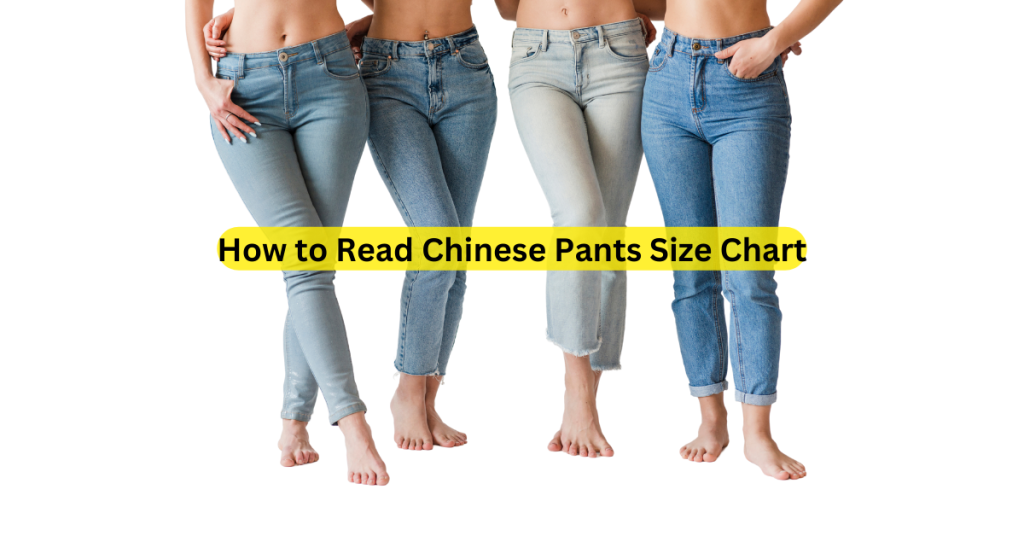Thread Count Explained – What’s the Best Sheet Quality?
When it comes to choosing bed sheets, there are many factors to consider fabric type, weave pattern, material, and, of course, thread count. One of the most common metrics used when discussing sheet quality is thread count. This term can often be confusing for many consumers. While a higher thread count is often advertised as a sign of better quality, the reality is not always as simple. We’ll break down everything you need to know about thread count, how it impacts the quality of your sheets, and what’s the best sheet quality for you.
What Is Thread Count?
Thread count refers to the number of threads woven into one square inch of fabric. This includes both the horizontal threads (weft) and the vertical threads (warp) that are woven together to create the fabric. So, if you see a sheet labeled as having a “thread count of 300,” it means there are 300 threads per square inch of fabric — combining both warp and weft threads.
Traditionally, a higher thread count was associated with softer, more durable, and higher-quality sheets. However, it’s important to understand that thread count is just one of many factors influencing the feel and durability of bed linens. While thread count can provide some insight into a sheet’s quality, it’s not the sole determining factor.
How Does Thread Count Impact Sheet Quality?
The main function of thread count is to indicate the density of the fabric. When the thread count increases, the fabric becomes denser, which may result in a smoother texture and a softer feel. In general, a higher thread count can suggest that the fabric will be more luxurious and durable. A high thread count doesn’t always guarantee the best quality it depends on other factors like the quality of the fibers, the type of weave, and the material used.
Softness and Feel
A higher thread count often correlates with a smoother, softer sheet. More threads in a square inch can create a tighter weave, which generally feels smoother against the skin. However, if the threads used are of low quality, a higher thread count might not necessarily improve the feel of the fabric. For example, sheets with a high thread count made from low-quality cotton may feel rough or stiff despite their high number of threads.
Durability
In general, sheets with higher thread counts are usually more durable because the tight weave can make the fabric more resistant to wear and tear. However, if the threads are thin or low in quality, increasing the thread count can actually decrease durability. It’s the quality of the material (e.g., cotton vs. polyester) and the way the threads are woven that ultimately affect durability.
Breathability
Breathability refers to how well air can circulate through the fabric. Higher thread count sheets, especially those made from natural fibers like cotton, are typically more breathable, which helps with temperature regulation and moisture-wicking. However, a very high thread count can sometimes make the fabric less breathable, especially if it results in a very dense weave that traps heat. Therefore, choosing the right balance of thread count and weave is crucial for comfort.
Wrinkle Resistance
High thread count sheets, especially those made with a tighter weave, are often less prone to wrinkles. However, this doesn’t necessarily mean that the sheets won’t wrinkle at all. Lower-quality materials might still wrinkle, even with a higher thread count. If wrinkle resistance is important to you, you may want to consider other factors like the material and any additional finishes, such as wrinkle-free treatments.
What Is the Ideal Thread Count for Bed Sheets?
The best thread count for bed sheets varies depending on personal preferences, the material of the sheets, and how much wear and tear the sheets will experience. In general, most people prefer a thread count between 200 and 800. Here’s a breakdown of what to expect from various thread counts:
200-400 Thread Count
Sheets in this range are typically soft, breathable, and affordable. Sheets with a thread count of 200 to 400 are common for casual bedding, such as those made from cotton or a cotton-blend fabric. These sheets offer a balance of softness, durability, and breathability, making them a great choice for most people.
Pros:
- Soft yet breathable
- Affordable price range
- Suitable for all seasons
Cons:
- May not feel as luxurious as higher thread counts
- May wrinkle more than higher thread count sheets
400-600 Thread Count
Sheets with a thread count of 400 to 600 are considered high-quality and luxurious without being too heavy or dense. These sheets often have a silky feel and are more durable than lower thread count sheets. They tend to strike a good balance between softness, breathability, and durability, making them ideal for people who want a more premium feel without going overboard on thread count.
Pros:
- Luxurious and soft
- Durable and resistant to wear
- Good breathability
Cons:
- Can be expensive
- May not be as breathable as lower thread count sheets
600-800 Thread Count
Sheets in this range are often thicker and heavier, with a dense weave that makes them feel ultra-soft. Sheets with a thread count above 600 can provide a luxurious, high-end feel, but they may not always be the most breathable option. Additionally, sheets with a very high thread count may not feel as comfortable if they are made with low-quality fibers, such as polyester.
Pros:
- Luxurious and silky smooth
- Very durable and long-lasting
- Great for cold climates
Cons:
- Can be too heavy or hot for warm sleepers
- Expensive, especially for higher-quality fabrics
800+ Thread Count
Many luxury brands market sheets with thread counts of 1,000 or more, but it’s important to note that thread count above 800 may not significantly improve the quality of the sheet. In fact, some manufacturers increase thread count artificially by using thinner threads, which can make the sheets feel less durable and breathable.
Pros:
- Super luxurious feel
- Can be very durable (depending on quality)
Cons:
- May trap heat and become less breathable
- Often expensive without a significant improvement in quality
Other Factors Affecting Sheet Quality
While thread count is important, it’s not the only factor to consider when buying sheets. Here are some other elements that affect the quality of your sheets:
1. Material
The material of the sheets is one of the most critical factors for comfort and durability. Cotton, especially Egyptian cotton and Pima cotton, is considered the gold standard for high-quality sheets. Other materials, such as linen, silk, and bamboo, also offer distinct advantages. The material you choose should complement your personal preferences for feel, durability, and breathability.
2. Weave Type
The weave pattern plays a significant role in the texture and durability of your sheets. Some common weaves include:
- Percale: Crisp, cool, and breathable, ideal for warmer climates.
- Sateen: Silky and smooth with a shiny finish, providing a luxurious feel.
- Twill: Soft and durable, often with a subtle diagonal weave.
3. Fiber Quality
The quality of the fibers used in your sheets is equally important as thread count. For example, sheets made from long-staple fibers like Egyptian cotton are softer and more durable than those made from shorter fibers. High-quality fibers contribute to the overall feel and longevity of the sheets.
4. Finish and Treatments
Some sheets come with additional finishes, such as wrinkle-resistant or stain-resistant treatments. While these finishes can add convenience, they may also impact the natural feel of the fabric. It’s essential to weigh the benefits of these treatments against their potential effects on comfort and breathability.
9 Frequently Asked Questions
1. What is the best thread count for soft sheets?
For the softest sheets, a thread count between 400 and 600 is ideal. This range offers a balance between softness, breathability, and durability.
2. Is 1,000 thread count too much?
Thread counts above 800-1,000 may not provide a significant improvement in quality and may even result in a denser, less breathable fabric. The quality of the material is just as important as thread count.
3. Does a higher thread count mean better quality?
Not always. While higher thread counts can indicate a denser fabric, the quality of the material and weave are just as important. A high thread count with low-quality fibers or an artificially increased thread count may not provide a better experience.
4. What’s the best material for bed sheets?
Cotton, especially Egyptian cotton or Pima cotton, is considered the best material for bed sheets due to its softness, durability, and breathability. However, other materials like linen and bamboo also offer unique benefits.
5. What is the best sheet for hot sleepers?
For hot sleepers, look for sheets made from breathable materials like cotton percale or linen. These fabrics allow air to circulate, helping to regulate body temperature throughout the night.
6. Are 300 thread count sheets good?
Yes, 300 thread count sheets can offer a good balance of softness and breathability. If they’re made from high-quality fibers, they can be quite comfortable and durable.
7. What’s better: percale or sateen sheets?
Percale sheets are more breathable and crisp, making them ideal for warm sleepers. Sateen sheets, on the other hand, are silky, smooth, and often have a more luxurious feel, but they can be warmer.
8. How often should I replace my bed sheets?
It’s recommended to replace your bed sheets every 1-2 years, depending on the material’s condition. If they start feeling rough, lose their softness, or develop wear and tear, it’s time for a new set.
9. Does thread count matter for linen sheets?
Linen sheets typically have a lower thread count than cotton sheets but are still incredibly durable and breathable. When it comes to linen, focus more on the material and weave type than thread count.
Conclusion
Thread count can be an essential factor in choosing high-quality sheets, but it’s not the only one to consider. While higher thread counts can indicate a denser fabric, the quality of the fibers, the weave pattern, and the overall material are equally important in determining the feel and durability of your sheets. Ultimately, the best thread count for you depends on your preferences for softness, breathability, and overall comfort. By balancing thread count with other factors, you can find the perfect sheets for your needs and enjoy a good night’s sleep.





